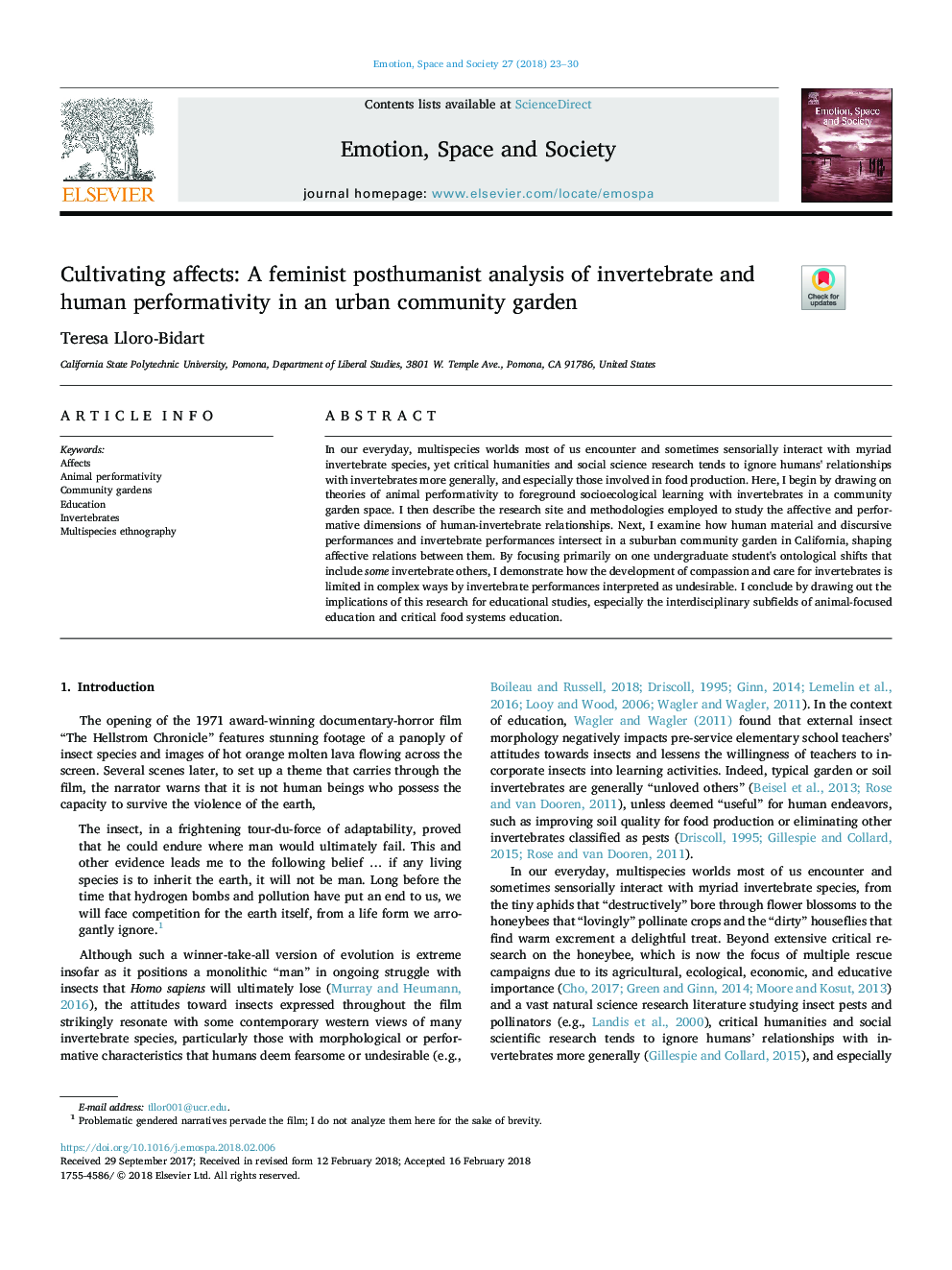| Article ID | Journal | Published Year | Pages | File Type |
|---|---|---|---|---|
| 7322829 | Emotion, Space and Society | 2018 | 8 Pages |
Abstract
In our everyday, multispecies worlds most of us encounter and sometimes sensorially interact with myriad invertebrate species, yet critical humanities and social science research tends to ignore humans' relationships with invertebrates more generally, and especially those involved in food production. Here, I begin by drawing on theories of animal performativity to foreground socioecological learning with invertebrates in a community garden space. I then describe the research site and methodologies employed to study the affective and performative dimensions of human-invertebrate relationships. Next, I examine how human material and discursive performances and invertebrate performances intersect in a suburban community garden in California, shaping affective relations between them. By focusing primarily on one undergraduate student's ontological shifts that include some invertebrate others, I demonstrate how the development of compassion and care for invertebrates is limited in complex ways by invertebrate performances interpreted as undesirable. I conclude by drawing out the implications of this research for educational studies, especially the interdisciplinary subfields of animal-focused education and critical food systems education.
Related Topics
Social Sciences and Humanities
Psychology
Social Psychology
Authors
Teresa Lloro-Bidart,
